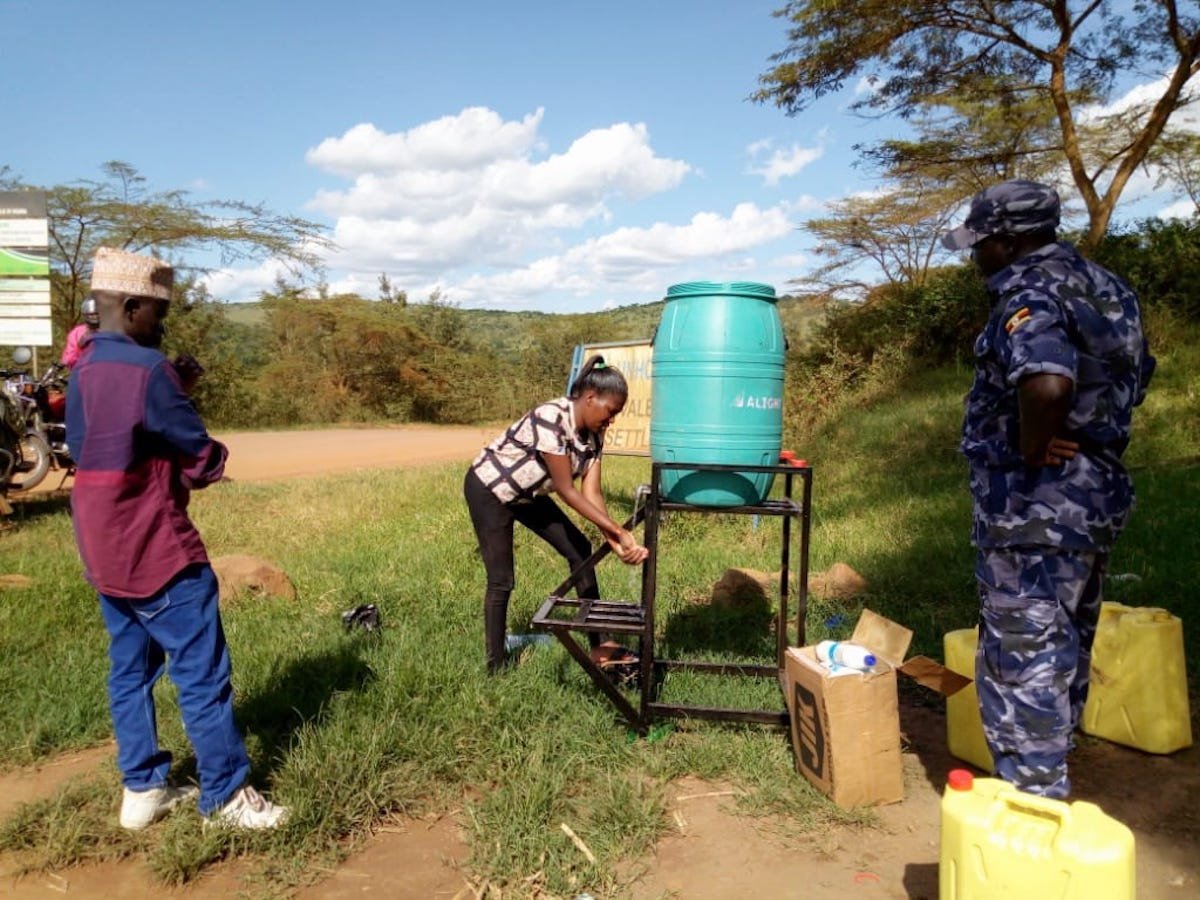When the COVID-19 coronavirus emerged, refugee settlements and camps were seen as uniquely vulnerable.
They’re often crowded, making social distancing difficult. They often lack water and sanitation, undermining efforts around hygiene. And their health facilities tend to be under-resourced and understaffed.
To make matters worse, the pandemic disrupted supply chains and international travel for humanitarian organizations.
But something more positive unfolded in the Nakivale refugee settlement in the Isingiro District of southwest Uganda, home to around 110,000 people from at least 14 countries.
The refugees didn’t wait apprehensively for an outbreak; instead, they took action to mitigate the virus’ impact, according to Mike Zuckerman, global connector at the humanitarian organization Alight, which works in Nakivale as the lead implementing partner organization for protection services, ensuring the well-being and safety of residents.
Refugees have made and delivered essential supplies, expanded access to health care, and combated the spread of misinformation.
"[The pandemic] kind of moved them to be implementation partners, rather than recipients of aid," he said.
Early on in the pandemic, the Ugandan government shut the country’s borders and vastly restricted the movement of people, except for essential services. Refugees in Nakivale navigated this barrier by buying trucks with humanitarian aid, which they used to travel throughout the settlement delivering supplies, checking in on community members, and providing public health updates.
"Refugees helping each other is effective for many reasons," Zuckerman said. "They have empathy, understanding, trust, all of those different things."
Groups of refugees working with Alight went around asking families what their biggest concerns were and how resources should be used. After receiving more than 1,000 comments, they learned that people wanted more information on COVID-19. They also wanted masks, bars of soap, and other supplies.
A group of refugees began making masks and soap with support from Alight and their partner to.org. To date, they have made and delivered more than 14,000 masks and 8,000 bars of soap to community members.
"The soap was given to newly arrived refugees who were able to use it to wash their hands and clothes," Zuckerman said.
In many cases, refugees are able to sell these and other items to earn a sustainable income and to contribute to Nakivale’s already robust economy.
An enterprising refugee named Patrick Muvunga, who has a background in art and design, devised cheap and portable hand-washing stations consisting of 50-gallon drums and foot pedals. At least 100 of them have been distributed throughout the settlement, according to Zuckerman.
Another group of refugees worked with Alight to make a pop song that contains public health information and dispels misinformation. This effort was part of Alight’s broader campaign of disseminating useful COVID-19 information, which has so far reached more than 100 million people in more than 40 languages.

Globally, conspiracy theories and misinformation campaigns — sometimes from political leaders — have complicated efforts to contain the virus. In refugee camps, fighting misinformation doesn’t require sophisticated tools largely because of the lack of digital infrastructure, according to the United Nations. Instead, public health advocates can deliver information on foot or by vehicle.
That’s why the community engagement approach in Nakivale has proven so effective. Teams of refugees are listening to concerns and fears and helping community members come to informed conclusions.
"The coronavirus pandemic is overwhelming for many of us," said Daniel Wordsworth, CEO of Alight, in a press release. "But the refugees and migrants we work with are stepping up, rallying their communities, and taking action to protect their most vulnerable."